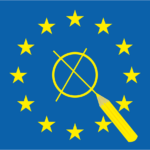This spring, negotiations on setting up a new EU body for ethical standards were concluded between the EU institutions and advisory bodies, including the ECA. As a result, the founding agreement was signed on 15 May in Brussels by the eight participating institutions and bodies, namely the European Parliament, the Council of the EU, the European Commission, the Court of Justice of the EU, the European Central Bank, the European Court of Auditors, the European Economic and Social Committee, and the European Committee of the Regions. The new body will enhance integrity, transparency, and accountability in European decision-making. As the EU’s external auditor – and its financial watchdog – we called for such an initiative in our 2019 special report on the ethical frameworks of the largest EU institutions and policymakers.
The body will develop, update, and interpret common minimum standards for ethical conduct, and publish reports on how these standards have been reflected in each signatory’s internal rules. This is a significant step towards fostering a common culture of integrity and ethics, including common minimum ethical standards to be developed by an interinstitutional body.
“The principles of accountability, transparency and ethics stand as indispensable pillars of our Union and are essential to its democratic, legitimate, and effective governance”, said ECA President Tony Murphy. “This interinstitutional initiative demonstrates that there is a commitment to work together towards a common culture on ethics, which shall also further increase citizens’ trust in the EU institutions.”
“We are very pleased that the negotiations came to fruition. We are especially satisfied that the ECA’s previous recommendations for the harmonisation of standards and enhanced cooperation helped this important development, which will now pave the way for the establishment of common ethical standards,” said ECA Member George Marius Hyzler, who represented the ECA in the negotiations.
While the initial proposal was put forward by the European Commission, the initiative follows the ECA’s report of 2019, in which the auditors recommended improving the ethical frameworks of the EU institutions audited, namely the Parliament, Council and Commission. The report also encouraged the audited institutions to work together to harmonise ethics-related issues and make further efforts not only to share good practices, but also to improve awareness and perception of ethics and the culture of ethics.
The participating institutions will each be represented by one senior member. The position of chair will rotate every year between the institutions. Five independent experts will support the body’s work and can be consulted by any party to the agreement on declarations of interest or other standardised written declarations.
The ECA also has its own ethical guidelines, which are based on the values of independence, integrity, objectivity, transparency and professionalism. They apply to all ECA Members and staff. These guidelines help ensure that daily decisions on both auditing and the running of the institution comply with the principles laid down in the ethics code of the International Organization of the Supreme Audit Institutions (INTOSAI), as well as with the EU Staff Regulations. In addition, ECA Members are subject to a code of conduct that sets out their obligation to observe ethical principles such as integrity, independence and objectivity.

European Court of Auditors: It takes too long to recover misspent EU money |
More information: European Court of Auditors







Leave a Reply